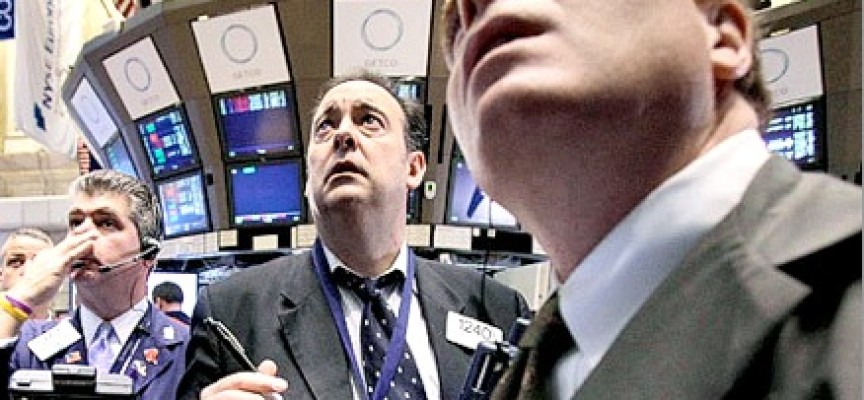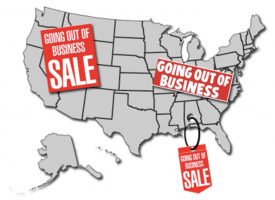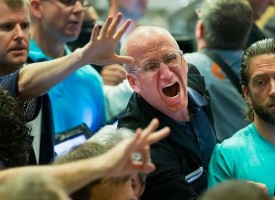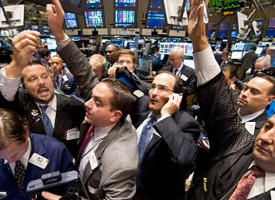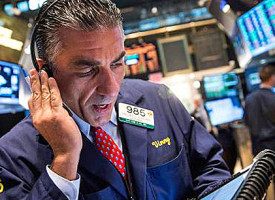With oil trading near $77, and stocks at all-time highs, below are three incredibly powerful commentaries discussing everything from a coming stock market crash to a severe financial crisis and a loss of confidence.
By Art Cashin Director of Floor Operations at UBS
November 11 (King World News) – “On this day in 1918, Pvt Henry Gunther of Baltimore, Maryland thought he saw a suspicious movement in the German trenches across the way. Fearing that the "Huns" were using the mid-morning sun to get some territorial advantage while the peace talks dragged on, Gunther decided to rush the suspicious area. Henry was fast but, unfortunately, not invisible. A single shot from a German rifle struck him in the heart and killed him instantly. The time was 11:01 a.m. just 1 minute after the war officially ended, making Put Henry Gunther the final casualty of World War I.
Thus, he joined nearly 8.4 million other victims who died in that conflict alone (113,000 Americans). But Gunther was in a distinct minority – he died of a wound. More than half of the rest died of the flu or other illnesses. But, as noted, at 11:01 a.m., Harry Gunther became the last military casualty of World War I. If only he had known that world leaders had already agreed upon on a cease-fire (about four days before). But with a nod to symmetry, history and-yes-even numerology, they had decided to implement the Armistice on the Eleventh hour of the Eleventh day of the Eleventh month.
To celebrate, take off your trench coat, decant some cognac with a local Lili Marlene and ponder the wisdom of the great philosopher who said, "Life is what happens to you while you're busy making plans". (I hear Gunther's family changed the spelling of their name but I lost track of them.)
There was no sign of an Armistice on Wall Street, Monday, as the bulls remained on the attack, albeit in a somewhat more muted fashion.
Stocks Start Uncertainly, But Float To Yet Another Record – U.S. stocks opened Monday's trading a little uncertainly. The bulls quickly regrouped but by 10:15, their rally attempts seemed stalled around Friday's highs.
In a mid-morning note, I summed the action up like this:
So far it's all about internals. S&P has a trendline resistance band at 2033/2036. It was the limit of Friday's rally and the opening rally today.
By late morning, the bulls got their act in gear and easily sliced through the resistance band. Here's how I described it to some friends:
The S&P approached the S&P resistance band and floated through it on relatively light volume. The lift was facilitated somewhat by a final hour pop in Europe (especially the DAX).
WTI, which was trading better early on, now shows pronounced weakness. If it slips below $77, could weigh on the stocks.
Run rate later.
Oil flirted with breaking $77 a few times as we slipped into afternoon. Then it bounced back a bit. I sent this follow-up:
Run rate at 1:00 projects to NYSE final volume of 680/760.
WTI off lows eased pressure on equities.
(The final NYSE volume was 716 million shares.)
Traders continued to watch oil through the afternoon but it managed to stay above $77 so its influence on stocks remained muted.
One sector that benefitted was the healthcare group amid buzz about another Supreme Court review of the healthcare act and some likely tweaking from the new Republican Congress.
All in all, more of a quiet consolidating session than an all-out bull stampede.
Maybe The Slowdown Is Seasonal – In his weekend review of markets, my good friend and fellow trading veteran, Jim Brown, over at Option Investor reviewed the non-farm payroll data. Among the exercises on the numbers he performed, one was to strip out the seasonal adjustments. What he found was jaw-dropping.
Here's what Jim wrote:
This may have been the best report ever for October. Say what? If you back out the seasonal adjustments there were 1.064 million net jobs created according to the BLS. This is a record. The prior high for October was 980,000 in 2004. The seasonal adjustments for October were unexpectedly high and no reason was given for the rise. If they had used the same adjustment numbers as last October the headline number would have shown a gain of +373,000 jobs. The BLS is under investigation by multiple committees for falsifying data. Expect that to heat up when the newly elected take their seats in January.
That's a stunning discovery. Why was the seasonal adjustment adjusted so phenomenally higher? Starts to make the China data look amazingly precise. No wonder Paul Singer says lots of U.S. economic data is bogus.
A Little Clear Thinking Is In Order – I alluded to Paul Singer, the brilliant head of Elliot Associates, whose recent letter to investors is causing a lot of chatter on Wall Street
I have not seen the whole letter but bits and pieces appear to be moving about in blogs and on trading desks almost as treasured snippets.
Here, courtesy of Bill Fleckenstein's Rap is a part on central bankers and faulty planning:
For their part, central bankers keep talking about inflation targets as if inflation is a proxy for growth. It is not. The reality is that inflation only has an indirect impact on growth, so the effectiveness of inflation as an expansionary tool is extremely limited, as evidenced by the economic malaise we have witnessed in the six years since the financial crisis.
Perhaps the recent October nervousness in the financial markets is only a 'trailer' for the next period of real market turmoil. When the next such period arrives, it could resemble a 'panic' or 'crash' for a short period of time, before the inevitable 'cavalry' (central banks and major governments) comes noisily over the hill to calm scared investors and encourage them to stop their selling and start their buying. On the other hand, there is a very real possibility that the cavalry's thundering hooves will cause investors to get even more frightened and run away, perhaps having lost confidence in the effectiveness of the central bankers' toolkit (essentially permanent policies of ZIRP, unlimited asset purchasing and market manipulation, and other — yet untried — policies supporting trillions of dollars of money creation). The next period of real market turmoil may then turn into a severe financial crisis, the exact shape of which cannot be determined in advance. It is hard to imagine what the governments can do when the signaling effect of central bank activist intervention is no longer effective to stop the crisis from spreading — unless the politicians of the world are finally goaded into taking the serious and appropriate fundamental actions necessary to ameliorate the crisis. Don't hold your breath.
I'll search around for more of the letter.
Consensus – Veteran's Day means that bond markets are logically closed as are several foreign markets. That suggests lower than normal volume, and slightly less liquid markets. Market likely to feed on its own internals but keep an eye on crude. Stay wary, alert and very, very nimble. Take time to thank a veteran.
IMPORTANT – KWN has many more interviews being released today.
© 2014 by King World News®. All Rights Reserved. This material may not be published, broadcast, rewritten, or redistributed. However, linking directly to the blog page is permitted and encouraged.
The audio interviews with William Kaye, Dr. Paul Craig Roberts, Andrew Maguire, Eric Sprott, Bill Fleckenstein, Rick Santelli, Rick Rule, Andrew Huszar, John Mauldin, Egon von Greyerz, Michael Belkin, and Marc Faber are available now. Other recent KWN interviews include Jim Grant and Felix Zulauf — to listen CLICK HERE.

